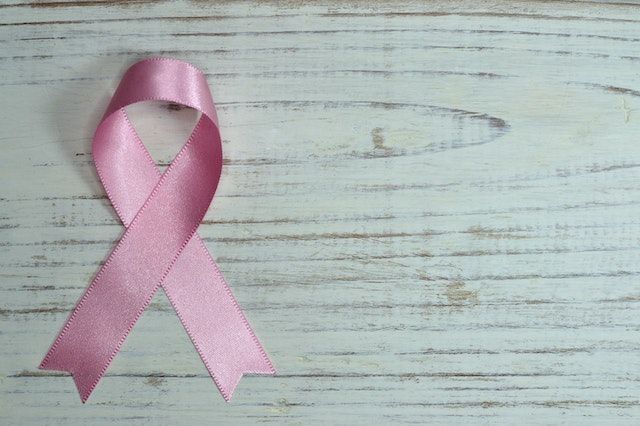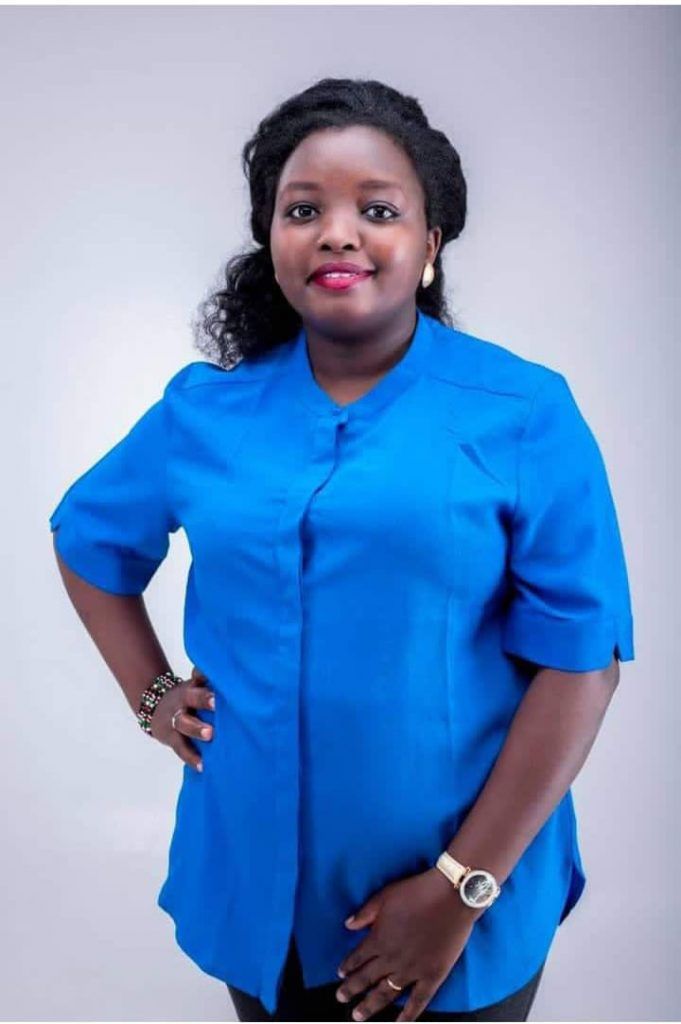
“You have cancer.” No one ever wants to hear this, whether it is about them or their loved ones.
Robert Marine, a 44-year-old cancer survivor now turned caregiver, was first diagnosed with the disease in 1986 at the age of 12 years when he developed a lump under his armpit. At the time, cancer was a death sentence, and little was known about it. Marine was a class 6 pupil who did not understand what lymphoma was or the severity of the disease.
He was then referred to the Kenyatta National Hospital, where he had his surgery, chemotherapy and radiotherapy sessions that left him with blisters and temporarily paralyzed part of his body.
Joan Wangare, a member of the KILELE Health Association, says that cancer is a disease she never dreamt of being diagnosed with at 26 years. It impacted her mentally, physically and emotionally. In that year, 2011, she was diagnosed with pancreatic cancer and was treated for three years, through surgery and chemotherapy.
Long before the cancer was determined, Joan had on various occasions been misdiagnosed and treated for hepatitis and allergies. As her condition worsened, an abdominal ultrasound was done and a tumour was detected.
“Nobody likes to talk about cancer. It is associated with death and suffering so most people don’t want to know about their condition. It is alarming because people lack knowledge of the treatments available. They think that cancer is a death sentence. Because of this, early diagnosis and screening are missed,” Dr Andrew Odhiambo, a medical oncologist with the Nairobi Hospital, lamented.
The oncologist says that many people only go to the hospital when they feel sick, at a stage where only a diagnosis is required, not screening.
The cancer burden
Cancer is the fifth leading cause of death in Africa, and third in Kenya, after cardiovascular and infectious diseases. In a 2020 GLOBOCAN report, the cancer incident count in the African landscape had increased from 542,000 to 1.1 million between 2008 and 2020. The report further observed that Africa had 19.4 per cent of the global cancer cases, with a mortality rate of 22.4 per cent resulting from cervical cancer. In sub-Saharan Africa, cervical cancer was reported to be the leading malignancy.
With a diverse population of 54.7 million, Kenya records 42,116 cancer cases yearly. In a 2020 International Agency for Research on Cancer report, at least 16 per cent of cancer cases reported were breast cancer, closely followed by 12.4 per cent of cervical cancer.
Speaking at a recent cancer Summit, Susan Wafula, the Health Cabinet Secretary observed that cancer has been a major health concern in the country.
“Every day, we lose at least nine women to cervical cancer and many others diagnosed with different types of cancer as a result of late diagnoses. For every 10 people diagnosed with oesophagal cancer, for instance, nine of them die,” the CS lamented.
According to the Lancet Oncology report, the number of annual cancer cases in Sub-Saharan Africa is expected to double by 2030. In the next two decades, the number of new cancer cases is expected to rise by 120 per cent.
What really causes cancer?
Dr Odhiambo says that while cancer does not have any direct cause, it is linked to risk factors, some of which could be inherited.
“One can inherit a defect depending on how the genes are made-up, predisposing the individual to cancer later in life,” he notes.
Lifestyle risk factors include things people are exposed to such as processed foods, excessive alcohol, tobacco use, repeated exposure to different sexual partners, exposure to radio-magnetic waves and frequencies, exposure to radiation, and many more are partially to blame.
“However, someone could be exposed to risk factors such as smoking all their life and not get cancer. Someone else who has never smoked could be diagnosed with lung cancer, making it very difficult to explain to them what exposed them to the disease.”
For cancers such as cervical cancer which is caused by the HPV virus, the cause is known. Also, Hepatitis, and HIV, among other autoimmune diseases, Odhiambo notes, increase the chances of acquiring cancer.
What should we do?
Dr Odhiambo was quick to raise concern over cancer screening reluctance, saying that the disease faces a lot of stigma in society. Screening means checking the body for cancer before symptoms develop.
“Some cancers such as colon and breast cancer, which are very common in the country, have more than 90 per cent chance of recovery when caught in stage one. When treatment is delayed, these chances go down. It is much easier and quicker to treat stage one cancer, cheaper even,” he added, saying that patients do not need to seek treatment abroad. The country, he says, has enough equipment, trained nurses and oncologists ready to deal with the disease.
Dr Githinji Gitahi, the National Cancer Institute Board Summit Chairman also emphasises the need for an early diagnosis. He says that 75 Kenyans die every day from cancer cases, most of which are preventable.
“Cancer is rising in Kenya and other African countries. Every day, we are diagnosing 115 new cases and that is an underestimate because many people do not seek care. It means that cancer is being diagnosed late, treated late, making the chances of survival low,” Githinji observed.
The Health CS noted that small actions taken by individuals, such as screening, could make the difference, noting that 70 per cent of the cases are often diagnosed at an advanced stage, making it nearly impossible to cure the disease.
“Accessing cancer care services means meeting high costs, which then leads families into financial catastrophe,” she added.
For Wangare, the hospital bills drained them of every coin they earned. She was under her husband’s medical cover, which only catered for 500, 000 shillings, of the 700, 000 shillings required for the surgery.
Wangare says every profit her business earned all went to covering her chemotherapy sessions, alongside her husband’s salary. Her brothers organised a fundraiser to cater for the accumulating bill, but no one turned up except her family members raising 30,000 shillings, which could only cater for one session. She and her husband had to take on the challenge.
Wafula stated that the Ministry of Health, in collaboration with county governments, now offers affordable cancer screening services, crucial to diagnosing the disease early.
The key factor to surviving the disease is early cancer screening which leads to early detection. For example, low-dose CT dedicated to lung cancer, mammography for breast cancer, and Pap smear/HPV cervical cancer test help in detecting cancer and its precursors.
According to Dr Alfred Karagu, CEO National Cancer Institute, breast and cervical cancers contribute to about 23 per cent of all cancer deaths.
Thus, the government has over the years launched multiple initiatives towards addressing the cancer burden. The Breast Health Awareness Campaign Pilot Report, for instance, was launched in 2020, following rising cases of breast cancer in the country. Fully efficient chemotherapy centres were also established at the county-level, across Nyeri, Kakamega, Garissa, Meru, Kisumu, Nakuru and Mombasa.
The Ministry of Health also distributed diagnostic equipment, including ultrasonography, mammography, x-ray and computed tomography. Screening for various types of cancer has been made available in various county hospitals. Every year, cervical cancer screening is done at no cost in primary level 2 and 3 hospitals. Despite these efforts by the government, the rate of screening was, by 2022, as low as 16 per cent.
For Marine, he underwent chemo sessions that he lost count of. Luckily in 1991, he was declared cancer free. Wangare, a mother of one at the time of diagnosis, had two surgeries at the Nairobi hospital, and then she received 18 sessions of chemotherapy at the Kenyatta National Hospital. In April 2014, she was declared cancer free.
The stories of Marine and Wangare are familiar. Sadly, most patients seek help when it is a little too late. Cancer cases are rising rapidly, with the illness affecting people of all ages, particularly vulnerable groups. It is crucial that you prioritise the cancer screening intervention when the chances of successful treatment are high.
“You have cancer”, does not have to be a death sentence.





